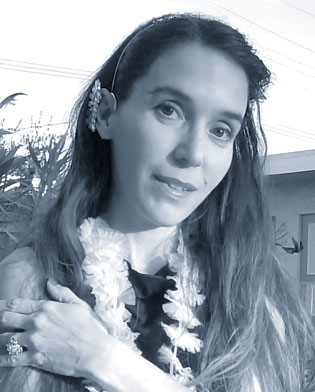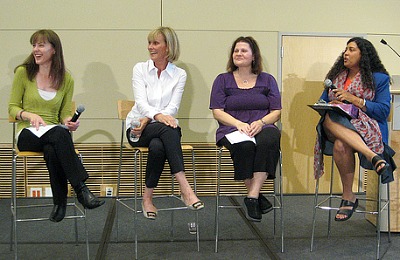
Women In Pain Awareness & Education Action Team
For Grace has assembled a Women In Pain Awareness & Education Action Team comprised of national pain experts who can speak to media and policy makers about the gender disparity issue from a personal, clinical and research perspective.
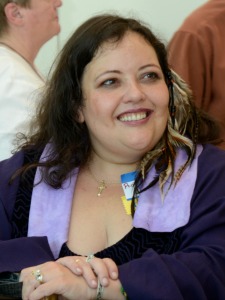
Interest Statement and Bio
Radene Marie Cook is a native of California, where she currently lives with her husband Doug, her mother and a big service dog named Raja.
Before an aircraft accident in 2000, Radene was an award-winning airborne news and traffic reporter in Los Angeles. Before that, her career included 15 years in radio as an on-air personality, a working stage actress, singer and dancer.
Radene has an American Indian heritage (Cherokee, Choctaw and Maya) and from a young age gained an interest in storytelling, traditional arts, crafts and jewelry making. For a time she also taught a small community class on the Cherokee (Tsalagi) language. Together with Doug and a martial arts expert, they opened a multi discipline self defense studio where she studied and could eventually coach other women.
The plane collision in 2000 changed life dramatically. A strong sense of humor, her simple spirituality and the great love and support from her family and friends carried her through the devastation of her physical condition. The key to Radene’s recovery came in 2005 when a specialist in intractable pain gave her a pain management regimen that was appropriate for her condition. In a few years of having proper treatment, she could –from home – run her own business “Aniwaya Artistry” which includes the multi-media art she creates and calls “Storytelling on canvas” as each piece has a narrative.
It is also where she works as a researcher for a group of specialists who are actively researching chronic pain as a pathology, looking for new treatments and modalities for relief. Like other chronic conditions, Radene will have to continue treatments for life but because of them, she can finally PARTICIPATE in life again and wants that freedom for everyone with chronic or intractable pain.
She and Doug are outspoken advocates for pain awareness issues. Radene is currently the head advocate for IPPU-Intractable Pain Patients United and state leader for the American Pain Foundation’s Action Network. Her book, The PAIN Factory: Confessions of a Worker’s Comp BAD Girl, will be coming out in 2011.
Radene shares, “With all my conviction, I support For Grace in their tireless work for women in pain. I am thrilled and honored for this opportunity to stand by their side.”

Interest Statement and Biography
Beth Darnall, PhD is an Associate Clinical Professor at the Stanford University School of Medicine and is a pain psychologist at the Stanford Pain Management Center. Prior to Stanford she was the 2012 President of the Pain Society of Oregon. She has delivered pain psychology services at the Comprehensive Pain Center at Oregon Health & Science University and at The Johns Hopkins University hospital and affiliated hospitals. She specializes in the treatment of women with chronic pain and in helping all people with pain reduce reliance on opioid painkillers by optimizing mind-body techniques.
Clinically, she is a pain psychologist at the Comprehensive Pain Center and works with women individually and in groups. Goals for treatment including helping women improve their mind-body connection, developing a skill set to decrease stress and pain responses, improving acceptance around the limitations that chronic pain sets, minimizing the need for pain medication, and addressing relationship issues that arise from life with chronic pain. Her own experience with a 5-year chronic pain condition led her to pursue a career that focuses on pain in women and to help other women with chronic pain improve the quality of their lives.
She is on the Board of Directors for the Pain Society of Oregon, serves as scientific advisor to End The Pain Project, and has appeared on KATU-TV to discuss pain psychology for women.

Interest Statement
State Senator Liz Figueroa has been the leading voice in the California legislature for those with RSD and Chronic Pain over the past several years. She chaired a Senate informational hearing about RSD (the first of its kind in the country) in 2001; also she was a leading organizer of a Senate informational hearing in 2004 that examined the gender disparity in treatment and care toward women in pain.
Senator Figueroa has either authored or co-authored three pain related awareness months; May as RSD Awareness Month, September as Pain Awareness Month and February as Women In Pain Awareness Month.
Below please read an announcement Senator Figueroa recently released to the pain community…
September 2, 2005
Dear Friends,
I am pleased to announce that the California State Legislature has approved my Senate Concurrent Resolution 59 which proclaims September 2005 as Pain Awareness Month. This resolution calls on all Californians to recognize the need to provide practical information for people with pain, to inform health care professionals about pain management, and to advocate for people experiencing pain.
I want to thank Cynthia Toussaint for bringing this important issue to my attention nearly four years ago. Since that time, I’ve been an advocate for those living with pain. I look forward to continuing to work together to ensure that pain sufferers receive the best possible care from their practitioners.
Sincerely,
Senator Liz Figueroa
Biography
Liz Figueroa, is a former California State Senator who as a Democrat represented the 10th District until she termed out in November 2006. Prior to being a Senator, Liz served two terms in the California State Assembly. She was the first Northern California Latina to be elected to the Legislature.
Senator Figueroa served on a variety of committees and was Chair of the Senate Committee on Business and Professions, the Joint Legislative Sunset Review Committee, the Senate Select Committee on International Trade Policy and State Legislation and the Senate Select Committee on Technological Crime and the Consumer. In her first year with the Assembly, Figueroa delivered nine bills to the Governor’s desk, all of which were signed into law—the highest percentage of any freshman legislator. She has been a leader in the high profile fight to reform managed care in California. Figeroa has been named Legislator of the Year by numerous organizations, including the March of Dimes, the American Academy of Pediatrics, the Association of Retarded Citizens, Leadership California and the California National Organization for Women.
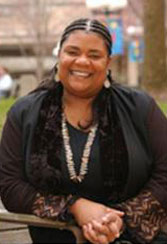
Interest Statement and Biography
Dr. Green serves as Medical Director of the Acute Pain Service within the Department of Anesthesiology’s Multidisciplinary Pain Center at the University of Michigan. Dr. Green also is the Chair of the Pain Management Steering Committee as well as the UMHHC Institutional Lead for the JCAHO Pain Initiative.
She has previously chaired the Medical Affairs Advisory Committee to the Executive Vice-President of Medical Affairs and was a member of the University of Michigan President’s Violence Against Women Task Force.
Dr. Green’s pain management research focuses on the roles of healthcare utilization and social history in chronic pain, demographics and social history on pain perception, physician variability in pain management, anxiety in postoperative pain, racial and ethnic, aging, and gender variables on pain management and health care disparities in pain management as they relate to vulnerable and underserved populations.
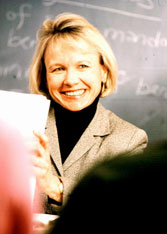
Interest Statement
My own work and interest in pain treatment for women comes from my research in pain treatment and management more broadly. Pain, as a general matter, is under treated for both sexes in this country. Women, however, for a variety of reasons, although more likely than men to experience painful conditions and diseases, are also more likely to be inadequately treated for their pain.
When I began to research the issue of how women experience pain and how difficult it is for women to find a physician who will listen to them and appropriately treat their pain I was incensed and felt compelled to write an article that would share my findings on the mismatch between women’s greater sensitivity to and experience of pain and their obtaining adequate pain treatment. As a result, I co-authored “The Girl Who Cried Pain: A Bias Against Women in the Treatment of Pain,” which was published in the Journal of Law, Medicine & Ethics. Subsequently, I published “Under treating Pain in Women: A Risky Practice,” in Law, Ethics and Gender in Medicine. The former provided the impetus for a special feature in the New York Times on women and pain: “Hurting More, Helped Less? When it Comes to Enduring Pain, Women Have Cause for Complaint” (June 23, 2002).
My more recent work on pain treatment focuses on legal obstacles to the prescribing of opioids and the legal risks faced by physicians who attempt to treat chronic pain.
Biography
Diane E. Hoffmann, JD, MS, is Professor of Law, Associate Dean of Academic Programs, and Director of the Law & Health Care Program at the University of Maryland School of Law. She received her law degree from Harvard Law School and her Master’s degree from Harvard School of Public Health. She has taught Torts, Law and Medicine, Health Care Law, Legal Problems of the Elderly, Critical Issues in Health Care, Research with Human Subjects, and Health Care for the Poor.
Her research interests include issues at the intersection of law, health care, ethics and public policy such as advance directives, obstacles to adequate pain treatment, end-of-life care and termination of life support, genetics, regulation of human subject research, and of managed care. She has served as a member of a number of ethics committees including those at University of Maryland Medical Systems, the National Institutes of Health in Bethesda, and the VA Medical Center in Baltimore. She has also served as a member of the IRB at the University of Maryland. From June 1994 to May 1995, while on leave from the law school, she served as the Acting Staff Director of the Senate Subcommittee on Aging and was responsible for all health care and aging legislation for U.S. Senator Barbara Mikulski.
From 1997 to 2004, she was a Mayday Scholar focusing much of her research and scholarship on legal and financial obstacles to the management of pain. She has published several articles in this area: “The Girl Who Cried Pain: A Bias Against Women in the Treatment of Pain,” “Achieving the Right Balance in Oversight of Physician Opioid Prescribing for Pain: The Role of State Medical Boards,” “Pain Management and Palliative Care in the Era of Managed Care: Issues for Health Insurers,” and “Dying in America: Policies that Deter Adequate End of Life Care in Nursing Homes.” Her current research includes a study of the use of health related genetic tests in the courtroom and an article on the criminal prosecution of physicians for prescription of opiods.
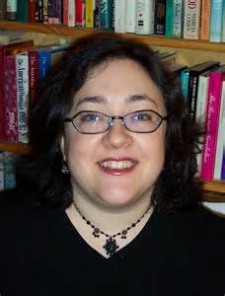
Interest Statement
In 1991, at the age of 23, I got a really bad headache. One so severe that now, in 2008, 17 years later, I still have that same headache, all day and all night.
Over the years, in my desperation to reclaim my old life, I was obsessed with trying every possible “cure,” no matter how expensive, damaging and irrational: from dozens of mind-numbing drugs to a failed surgery to a vibrating hat from a late-night Infomercial.
Indeed, after an epic—and at times absurd—odyssey through the extremes of Western and alternative medicine, I have not found a cure for the physical pain. But I have still learned a great deal, the hard way, about how to manage pain that won’t go away, which includes addressing and treating the mental and emotional pain that inevitably accompanies chronic pain.
I share these lessons, and medical-system critiques, in my memoir, journalistic report, and black comedy, All in My Head. The book goes beyond my own experiences and stops to address different “big picture” issues involved, such as framing chronic pain as a “women’s issue” – because of women’s disproportionate suffering with pain disorders and typical medical undertreatment for their pain. While it is specifically about chronic headache, the book also speaks to the particular experience of those with an “invisible disability” and the “thick-folder patient” in general.
I am now very honored to collaborate with the insightful, dynamic and committed people in the For Grace Leadership Circle.
Biography
Paula Kamen, a Chicago-based journalist, is the author of four books, including her newest, Finding Iris Chang: Ambition, Friendship and the Loss of an Extraordinary Mind, which will be out in paperback in early 2009. This book addresses other long-stigmatized women’s health issues, regarding hormones and mood disorders. The Chicago Tribune called the book “fascinating” and “engrossing” and one of its “favorite books of 2007.”
Paula has held the position of “Visiting Research Scholar” with Northwestern University’s Gender Studies Program since 1994. Her commentaries and book reviews have appeared in The New York Times, Washington Post, Salon, Ms., Chicago Tribune, In These Times, and more than a dozen anthologies.
In the past fifteen years, she has spoken at more than 100 non-profits and universities about her books, including the Tufts Medical School and the International Museum of Surgical Sciences in Chicago. She was born in Chicago and grew up in Flossmoor, Illinois.
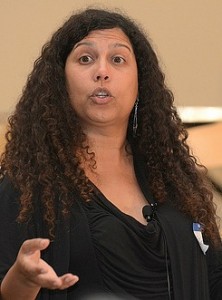
Interest Statement
I opened a door, injured my shoulder and my life changed. Thirteen doctors, nine months and more hours of pain than I can possibly count later, I was diagnosed with Complex Regional Pain Syndrome. The journey to a diagnosis was brutal. I dealt with doctors who accused me, the workaholic of not wanting to return to work; doctors who accused me, the patient with a medicine cabinet full of ineffective narcotics of being a drug seeker; and doctors who accused me, a person in real physical pain of having psychiatric problems. By the time I got my diagnosis, I felt like a battered woman.
I was fortunate enough to find some good doctors who were willing to admit when they did not know how to help me so I could move on and seek other care. Additionally, I was extremely lucky to find doctors who took the time to find out what was actually going on with me and who had the expertise to help me get well. I still have flair ups and still have to live with pain, but I am building a life of productivity.
There are so many women out there who are in pain and whose experiences are being discounted. I want to stand in solidarity with those women and say “No one else can ever feel what you are experiencing, so never let them invalidate your experience. Believe in yourself and keep speaking your truth! There are many caring medical professionals out in the world, be persistent, find them. And remember you are your own best advocate.”
The Women in Pain Leadership Circle is a wonderful opportunity to contribute to and be part of a community of people where connection and understanding mean so much. Being part of a community, having someone with whom you can reach out to and relate with can give you the energy to fight for another day.
Biography
Mindy Meyer, MA, is a Special Consultant to the Center for Collaborative Policy and an Independent Organizational Effectiveness Consultant. For the past 15 years, she has worked in a range of community development areas including affordable housing, workforce and economic development and youth development. Mindy’s areas of expertise include collaboration, community organizing, program development, strategic planning, facilitation, teambuilding and leadership development. She has work experience in the public, private and nonprofit sectors as a consultant, project manager and executive director.
In 2003, Mindy injured her shoulder which later developed into Complex Regional Pain Syndrome, also known as Reflex Sympathetic Dystrophy. Mindy was fortunate enough to receive a diagnosis during the window of time when intervention can be most effective. In 2005, she went back to school and got her Bachelor’s Degree and, through a scholarship, earned her Master’s in Organizational Management. Mindy is still living with pain, but continues to live an active life. She serves on the Board of Directors for the Venice Community Housing Corporation and is the appointed Chair of the Affordable Housing and Tenants Rights Committee for her local Council office.
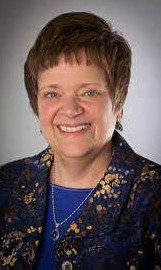
Interest Statement
(Excerpt from NurseWeek article, July 2003)
How did you get into nursing? Pain research?
I’ve always wanted to be a nurse, starting out as a candy striper in high school and, after graduation, went on to nursing school. It is what I’ve always wanted. Getting into pain research is a harder, more personal story. In the late ‘70s, my father had head and neck cancer. He died in horrific pain. I knew something was needed, but at that time didn’t know what it could be. When I finished my master’s degree in nursing, I worked with a neurologist at our hospital to develop a pain management service for inpatients and outpatients. This service provided care for patients with acute and chronic pain problems.
What did you find out about gender differences of pain perception in your research?
We were lucky to be able to evaluate how analgesics work using an acute pain model of wisdom teeth extractions. We worked with opiates and found that women get better analgesic effects from those drugs than men. This work opened up a field of research that had been previously overlooked. Other researchers now are looking at painful stimuli and finding that women are more sensitive to painful stimuli.
Biography
Christine Miaskowski, PhD, RN, FAAN, received her bachelor’s degree in nursing from Molloy College in Rockville Centre, N.Y., in 1974 and was awarded a master’s degree in nursing from Adelphi University in Garden City, N.Y., in 1979. She received a master’s degree in biology in 1979 and a PhD in physiology from St. John’s University in Jamaica , N.Y., in 1984.
She is a professor and chair of the department of physiological nursing at the University of California , San Francisco and an internationally recognized expert on pain management. She has received many awards, including the Helen Nahm Distinguished Research Lecturer Award and the Distinguished Nurse Researcher Award from the Oncology Nursing Society in 2000. She is also the immediate past president of the American Pain Society.

Interest Statement
In 1982, I was a 21-year-old ballerina when a minor ballet injury triggered the chronic pain disease, Complex Regional Pain Syndrome, also known as “The Suicide Disease.” For the first thirteen years of my illness, my doctors told me my physical problems were “all in my head” while the CRPS spread throughout my entire body, leaving me bedridden and screaming in pain for a decade – a pain that felt as if I had been doused with gasoline and lit on fire. I’ve now developed Fibromyalgia and Chronic Fatigue Syndrome that starve me of sleep and well-being. None of this had to happen!
After founding For Grace from my wheelchair, I birthed this Women In Pain initiative due to my personal experience and the inspiration of Diane Hoffmann and Anita Tarzian’s report, “The Girl Who Cried Pain.” I drafted my Women In Pain petition as a manifesto to rally around so women’s voices would at last be heard and followed that with my California Senate hearing and awareness month resolution in February 2004. I am excited to see this movement growing rapidly as the leadership and dedicated volunteers here at For Grace forward this effort throughout the nation.
Women’s pain being dismissed is intolerable and it is with absolute passion that I continue this work to prevent the unspeakable suffering that is happening…right now.
Biography
Cynthia Toussaint serves as Spokesperson at For Grace and has had Complex Regional Pain Syndrome for 39 years. She founded the organization in 2002 originally to raise awareness about the disease, and later developed Fibromyalgia and Chronic Fatigue Syndrome. She is also a cancer survivor. Before becoming ill, she was an accomplished ballerina and worked professionally as a dancer, actor and singer.
Since 1997, she has been a leading advocate for women in pain, raising awareness through local, national and worldwide media as well as public speaking. Toussaint championed and gave key testimony at two California Senate hearings. The first in May 2001 was dedicated to CRPS awareness. The second in February 2004 explored the chronic under treatment of and gender bias toward women in pain (the impetus behind For Grace’s expanded mission.) Both of these efforts were the first of their kind in the nation.
Toussaint has been featured on The Discovery Channel, ABC World News with Diane Sawyer, PBS, Discovery Health, TLC, AARP The Magazine, Newsweek, Woman’s Day and the New York Times, among others. She is a consultant for The Discovery Channel, ABC News, FOX News, the National Pain Report and PainPathways, the official magazine of the World Institute of Pain. Also, she is a guide and guest contributor for Maria Shriver’s Architects of Change website.
Her many speaking engagements include the National Institutes of Health, Capitol Hill and the World Health Organization.
Toussaint is the author of Battle for Grace: A Memoir of Pain, Redemption and Impossible Love.
Toussaint continues to be a leading advocate for health care reform in California. She was instrumental in changing public opinion which led to sweeping HMO reform legislation that was signed by Governor Gray Davis in 1999. Her focus has now shifted to bringing a single-payer, universal health care plan to all in California which will provide a model for the rest of the country.
In 2019, Toussaint was diagnosed with Triple-Negative Breast Cancer caused by CRPS and familial trauma. She’s ecstatic to be in remission and now has a passion for the pain-cancer/trauma connection. Moving forward, her work will continue to reflect that.
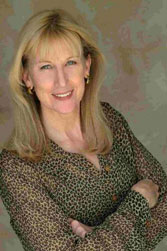
Interest Statement
I was first aware of unexplained pain in my body at the age of seven. My pediatrician told my mother that I was the sickest looking healthy child in his practice. Over the years other medical professionals suggested I was a “Blue Blood” and should sit on a pillow, or told me, “You have an ache in your stuffing, Raggedy Ann.” Imagine my joy of being diagnosed with fibromyalgia some 40 years later. Yes, joy; someone had finally heard my pain.
I am a pain survivor; not only from the FMS, but from migraine headaches I began experiencing as an adult. I am pleased to share my journey in order to help others avoid the years of self-doubt and confusion. I have been blessed with a very supportive family and now have found medical professionals who have helped me with treatment and understanding. Sure, there are still bad days, but they are fewer and easier now. Will there be more, especially as I age? Perhaps, but I have an understanding community around me to provide support when those days come.
Many women have to fight for health alone and are beaten down by the system. I am anxious to share my story in an effort to help others gain the endurance to find the necessary support to take back their lives which have been stolen by pain. I also want to show physicians the face and meaningful life of a successful survivor.
Biography
Gail Williamson is a well-known public speaker and advocate for performers with disabilities. Working as a consultant with the California State Media Access Office for more than 12 years, she has established herself as the “go to” person in Hollywood and elsewhere when a project includes characters with disabilities. Gail is currently employed as the Executive Director of the Down Syndrome Association of Los Angeles, Inc. Her connections in the Entertainment Industry along with her past position as president of the Media Image Coalition: A project of the L.A. Commission on Human Relations, gives her a realistic view of what media depiction can do for diverse groups.
Gail continues to travel for speaking engagements addressing issues like: “The Importance of Images of People with Disabilities in the Media,” “Media Advocacy,” “The Business of Show Business,” “Images of Down Syndrome in the Media,” and her and her husband’s personal story of raising two sons, one with a disability, and opening their home to their six nieces.
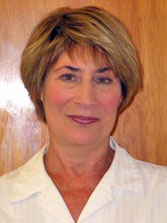
Interest Statement
I have a particular interest in gender differences in pain and pathways to pain in women versus men. I study children’s pain responses in the laboratory as well as risk factors in children with chronic pain to understand why there is a higher prevalence of chronic pain problems in women as they emerge from childhood into adolescence.
I am also studying interventions that might be particularly suited to women, and to mothers and daughters to break the transgenerational cycle of chronic pain. My additional interest in adult survivors of childhood cancer has also led to an interest in why women survivors have more pain problems then do male survivors and how to develop preventive strategies to reduce the likelihood of the development of chronic pain.
Biography
Lonnie Zeltzer, MD, is a Professor of Pediatrics, Anesthesiology, Psychiatry and Biobehavioral Sciences at the David Geffen School of Medicine at UCLA, Director of the Pediatric Pain Program at the Mattel Children’s Hospital at UCLA, Associate Director of the Patients and Survivors Program, Division of Cancer Prevention and Control Research, UCLA Jonsson Comprehensive Cancer Center, and past-medical director of Trinity Kidscare Pediatric Hospice.
Her program’s research focuses on pediatric chronic pain, end of life care in children, complementary and alternative therapies, and quality of life in survivors of childhood cancer. She has guided many collaborative clinical trials in analgesics in children, and is on the steering committee of the NIH-funded Childhood Cancer Survivor Study. She is the Chairman of the Cancer Prevention and Control Research Committee of the American Cancer Society and an NIH study section member.
She has received many awards, including a WT Grant Faculty Scholar’s Award, a Research Career Development Award from the NCI, the 2002 Physician Excellence Award from Trinity Hospice, the 2003 UCLA Helene Brown Award for Excellence in Cancer Control Research, a 2005 Mayday Pain and Policy Fellowship, the 2005 American Pain Society’s Jeffrey Lawson Award for Advocacy in Children’s Pain Relief, and is president-elect of the Pediatric SIG of the International Association for the Study of Pain. She is the Secretary of the American Pain Society and a member of the executive board of the American Pain Foundation. She has over 200 publications, including her book, Conquering your Child’s Chronic Pain: a Pediatrician’s Guide for Reclaiming a Normal Childhood, (HarperCollins, 2005).
She has been in the media, with recent examples including NPR, as well as ABC’s Good Morning America and the Evening News with Peter Jennings.
